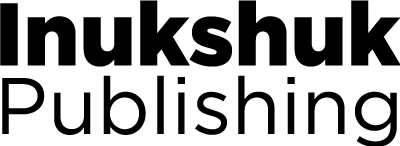The Many Facets of Mining: Alfred Moses, MLA
From Diavik to Politics

Did you know that the Canadian mining industry directly employs more than 373,000 workers across the country in mineral extraction, smelting, fabrication and manufacturing, and indirectly employs an additional 190,000 in other related fields.
Mining is also the largest private sector employer of Aboriginal people in Canada on a proportional basis.
Here at ABQ we decided it was time to take a look at a few of those individuals with careers that are in some way connected to mining.
Nowadays he may be a senior cabinet minister in the NWT government, but Alfred Moses wasn’t always a politician.
“Previous to being elected as an MLA, I had four different careers; three with GNWT and one with industry,” he said, adding his private sector time was at the Diavik Diamond Mine as an Occupational Hygienist and Wellness Coordinator.
While there he had the honour of participating in the Aboriginal Leadership Development Program, which helped him focus on developing his leadership skills.
“This program set the stage for where I saw myself advancing in my work and had me visualize where I wanted to be in the future,” he said. “This exercise ultimately brought me back to Inuvik to work at the community level and focus on local politics. I am passionate about helping people and this passion eventually led me to run for MLA.”
First elected to the Legislative Assembly in 2011 as the Member for Inuvik Boot Lake, he won a second term in 2015 and was subsequently named to cabinet as the Minister of Education, Culture and Employment (ECE).
From the minister’s chair at ECE he is an avid supporter of the resource sector and does so by continuing to strengthen partnerships that focus on skill development, training and employability, as well as maintaining the department’s strategic relationship with partners like Skills Canada NWT.
“I think it is important for the resource sector to have a presence in secondary schools so that students are aware of their options,” he said. “Raising a strong local workforce is fundamental to a healthy NWT.”
That’s a huge goal that he understands is critically important and it’s certainly not without its challenges.
“From early childhood to post-secondary, we need to encourage and support our youth to invest in their education,” he said. “Last year, the Conference Board of Canada released the NWT Labour Market Forecast and Needs Assessment. It showed the jobs that will be available in the next five, 10 and 15 years. For the first time in the history of the NWT, we have a clear picture of the potential shortages we are facing and we have time to help bridge those gaps.”
In particular for him, the statistic that stood out most from that exercise was that by 2030, 78 per cent of the jobs available in the NWT will require a post-secondary certificate, diploma or degree.
“When I was younger, people were able to get by with limited education, but that is rapidly changing,” he said. “We need to stress that to our youth. Education is important. A strong workforce needs a solid foundation. The more we encourage, support and educate our youth, the stronger our foundation becomes.”
Moses’ career path has not always gone in a straight line, especially when you consider he studied kinesiology and sports studies at Red Deer College, as well as physical education at the University of Alberta.
“Initially when I graduated from high school, I wanted a career where I would be helping youth,” he said. “I had great role models and coaches when I was growing up and I took my programs specifically to work on becoming a physical education/health educator.”
His jobs have changed a great deal over the years, but that’s only natural he said if you’re always pushing yourself to achieve bigger goals.
“Challenge helps foster growth and keeps your days interesting,” he said.
“Maybe most importantly, choose a career in something that you are passionate about it. It will make it easier and more enjoyable to do.”

